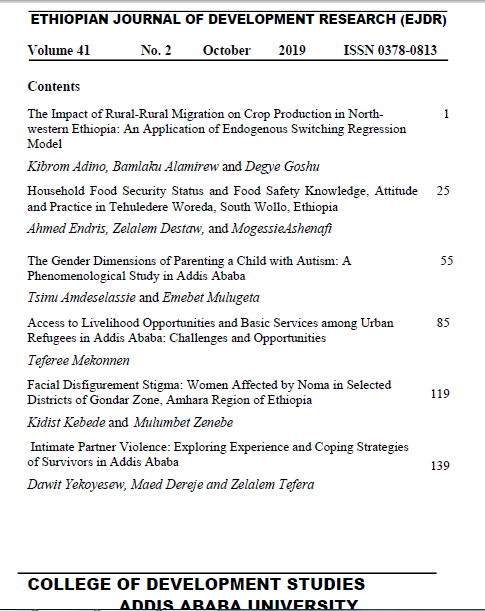Facial Disfigurement Stigma: Women Affected by Noma in Selected Districts of Gondar Zone, Amhara Region of Ethiopia
Keywords:
Noma, discrimination, disfigurement, female noma survivors (FNS), social stigmaAbstract
Noma is an infectious disease that results in impairment, severe facial
disfigurement, and morbidity. And yet, despite its devastating medical
and social effects, the disease has been a neglected clinical and social
burden. The objective of this study was to explore the social
consequences of living with disfigurement caused by Noma; manifested
in various forms of social rejection and exclusions. A qualitative
descriptive design was employed in which data was collected from
female Noma survivors (FNS), family members, community members,
and government authorities in selected districts in the Gondar area of
Ethiopia. using structured and semi-structured interviews. Results show
that stigma and discrimination due to facial disfigurement caused by
Noma negatively affected the mental and physical health of the female
Noma survivors and their families. In particular, it inhibited the Noma
survivors from making independent life choices, ripped their aspirations
and opportunity in education and condemned them to lifelong poverty
and misery. Also, results in self and social exclusions, degradation of
family and social positions. Myths surrounding Noma are prevalent in
the study area. Female noma survivors are burdened with complex and
multi-dimensional challenges due to gendered norms, inattention, and
misconceptions about Noma. This unfairness and discrimination against
them is yet unchallenged.
Downloads
Published
How to Cite
Issue
Section
License
Copyright (c) 2022 Kidist Kebede, Mulumbet Zenebe

This work is licensed under a Creative Commons Attribution 4.0 International License.


